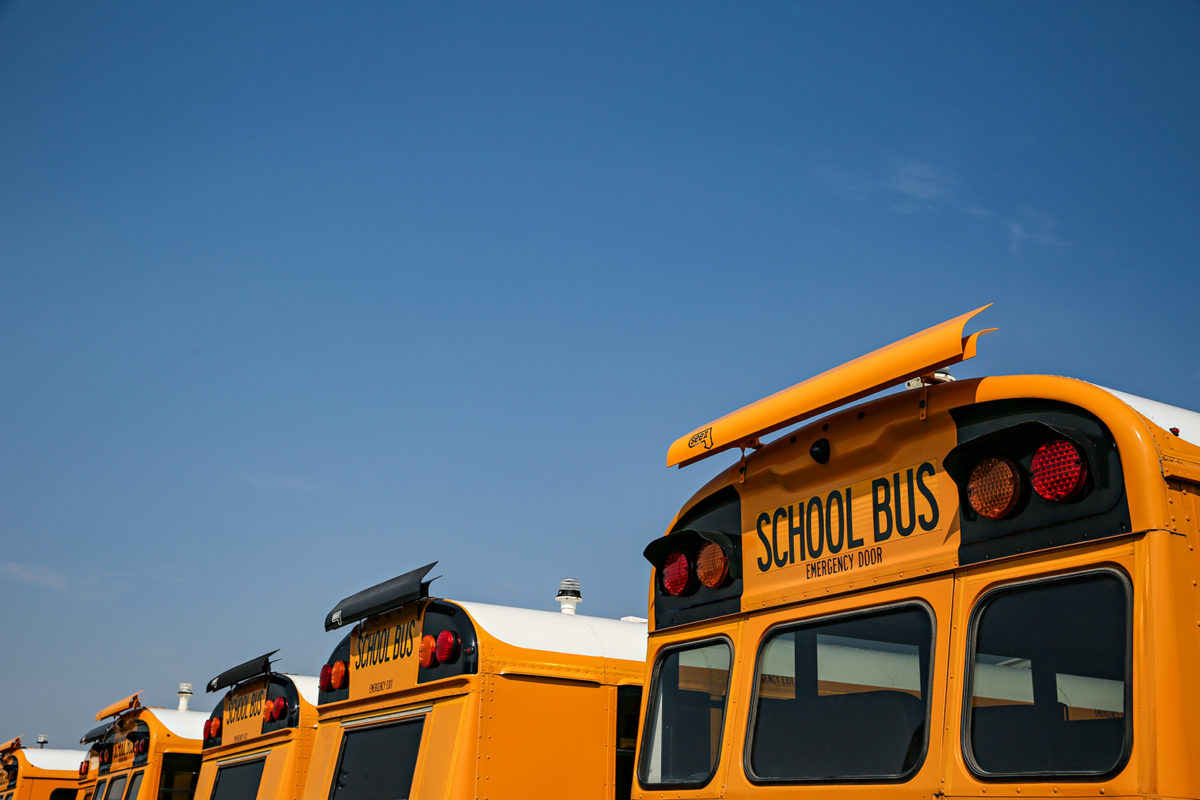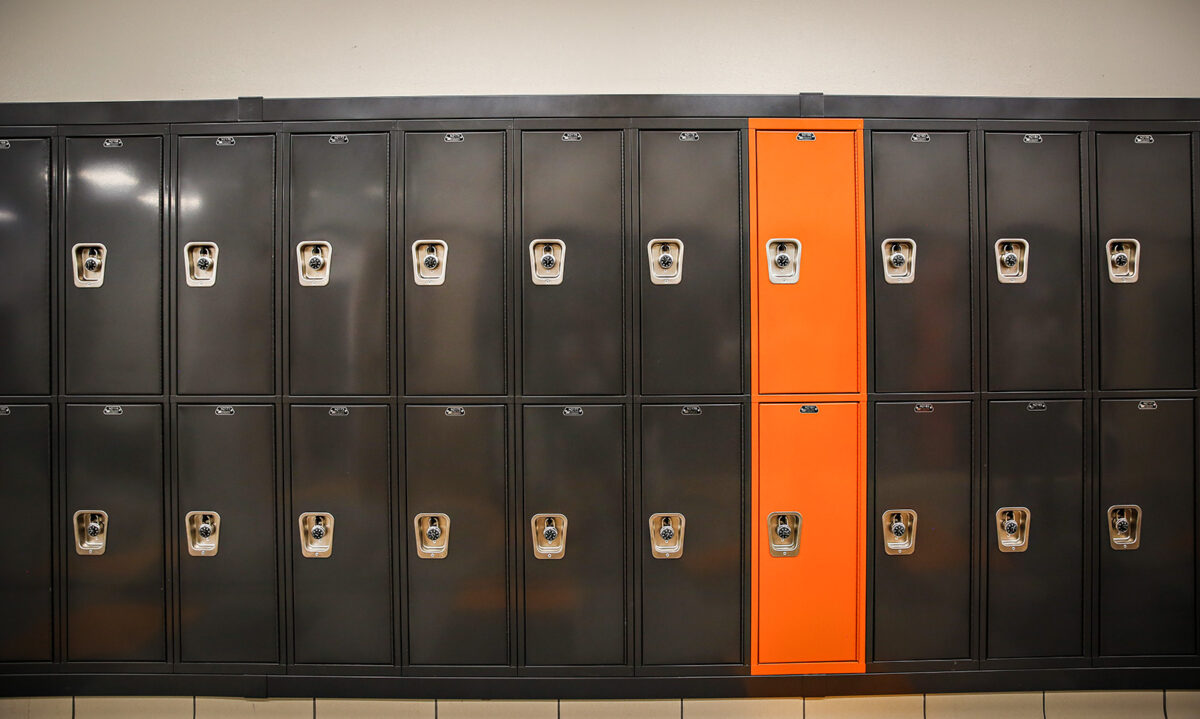Montana’s New School of Education Policy
After the 2023 Montana Legislature passed a slew of education bills, public schools are wrestling with dozens of rules changes and a policy landscape that some say could restrict the rights of marginalized students
By Denali Sagner
“I just think there could be a lot of different ways to justify self-defense,” Katie Clarke, a member of the Whitefish School Board, said, sitting around a table in the board’s meeting room at a policy committee meeting in mid-July.
“Yeah,” Whitefish School District Superintendent Dave Means said. “This is going to be really difficult for us.”
“As a parent, I might think something is reasonable that another parent doesn’t think is reasonable,” Clarke continued, speaking about a newly passed state law that codifies a right to physical self-defense for K-12 schoolchildren.
The school board trustee paused.
“It’s a nebulous thing.”
Clarke’s and Means’ exchange concerned Montana’s House Bill 450, “Protect physical self-defense in K-12 schools,” a new law that formed the basis for changes in the Whitefish School District’s policy manual — more specifically, “student discipline,” or section 3310. The district policy was one of many that the school board members would approve changes to over the course of the meeting, prompted by a wave of education legislation reshaping Montana’s public schools.
On a sunny Wednesday afternoon in July, the Whitefish School District building was largely empty, save a few straggling students waiting to be picked up from play rehearsal and the small group of school board members tasked with approving a 128-page folio of updated school policies ahead of its consideration by the entire school board later in the summer. The required policy revisions included topics from school board elections to privacy rights to bullying and harassment. In front of the three school board members and the superintendent sat the amended district handbook, as well as a memo with explanations for the new changes, prepared by the Kaleva Law Office, an education law firm based out of Missoula.
Though the new school year sat far from the minds of students and teachers during the dog days of Montana summer, school boards across the state found themselves considering a number of new school policies and practices, shaped by one of the most contentious legislative sessions in the state’s recent history. The 2023 legislative session alone saw the passing of bills to establish charter schools in Montana, increase career and technical education opportunities, provide targeted interventions to support third grade reading proficiency, expand loan assistance, raise salaries for teachers, and enhance reporting requirements for the Indian Education for All Program.
“It was a very robust session for education. I think in large part, on measure, the education community did very well,” Doug Reisig, the executive director of the Montana Quality Education Coalition, an education advocacy organization, said.
Yet teachers and parents delivered a mixed verdict on the 2023 legislative session, as lawmakers brought a combination of both popular, bipartisan reforms and contentious bills that advocacy groups say may threaten the rights of marginalized students and complicate the already demanding jobs of teachers. As the stack of new school-related laws have made their way from the Legislature to the classroom, educators are wrestling with how to implement wide-reaching new policies, and how to cater to an increasingly aggrieved “parental rights” movement that has driven a large swath of the changes at the state and local level.

During the 2023 session, the Montana Legislature introduced 125 bills related to education, an uptick from the 93 education bills introduced in 2021, 97 in 2019, and 62 in 2017. The figure is more than double the 59 education bills the Legislature introduced just a decade ago, in 2013.
The rise in education related legislation is, in part, a reflection of the record-breaking volume of bills considered in 2023 — the highest number of bills considered in a single Montana legislative session since 1973.
Means, who has worked in the Whitefish School District for nearly two decades, said that the volume of education legislation borne from the 68th Montana Legislature “definitely” feels larger than in past years.
Beyond just a spike in the volume of bills introduced by legislators, however, educators throughout Montana have attributed the growth in school-related laws to the state’s “parental rights” movement — a faction of parents who, emboldened by what they saw as unnecessary COVID-19 mitigation protocols during the pandemic, pushed to alter school policies that allegedly shut parents out of the classroom at the expense of student outcomes. Parental rights advocates have rallied behind striking down policies related to masking and vaccine requirements, prohibiting the teaching of critical race theory (which has already been banned in Montana schools by Attorney General Austin Knudsen), and curtailing LGBTQ+ content in schools. In school board meetings and legislative hearings, parents inspired by the “parental rights” push have alleged that teachers and administrators are deliberately keeping parents out of the classroom in order to push political agendas and indoctrinate children.
“Parental rights are undermined when authority figures withhold information from parents about their child, encourage the child to withhold information from his or her parents, or take any action that undermines the parents role in guiding their child,” Rep. Keri Seekins-Crowe, R-Billings, said during a February hearing on House Bill 676, legislation she introduced to “clarify fundamental parental rights.”

“Sadly, what I am hearing from my constituents is frustration,” she continued. “They are frustrated with organizations that are putting a wedge between parents and teachers.”
“All across the country, we have heard horror stories of schools that have increasingly focused on overstepping their roles to students, especially in the areas to physical and mental health, and trying to insert themselves as a replacement to the parent,” Jessie Browning, chapter treasurer for the conservative political organization Montana Moms for Liberty, said during the same hearing.
In 2023, Montana’s Republican lawmakers introduced House Bill 603, titled “Provide for reinstatement of parental rights”; Senate Bill 337, “Generally revise parental rights laws”; Senate Bill 518, “Revise parental rights laws to increase parental involvement in education”; and Seekins-Crowe’s House Bill 676 (mentioned above). Three of the four bills were signed by the governor, becoming law.
For Lance Melton, the executive director of the Montana School Boards Association (MTSBA), the parental rights movement is rooted in widespread misconceptions about how public schools operate and about the opportunities parents have long had to participate in their children’s education. Melton said that the vast majority of parental rights legislation — though presented as an antidote to secretive and possibly nefarious behaviors in the public school system — simply restates laws that were already on the books.
“School districts have had their doors open and have been cooperating with families for some time now,” Melton said. “I think that some of this — and I want to give them their due — is based upon a perception with which I disagree, but respect, that these things are not being adequately addressed.”

Seekins-Crowe’s House Bill 676 defines a number of rights that parents are endowed with to guide the upbringing of their children and participate in school proceedings. The listed rights include directing “moral or religious training” of children, making all mental and physical healthcare decisions, participating in parent-teacher organizations, opting children out of school for religious purposes, and maintaining the right “to choose public, private, religious, or home schools” for their child.
Senate Bill 518, introduced by Sen. Theresa Manzella, R-Hamilton, mandates that schools “adopt a policy to promote the involvement of parents” in their children’s education, allow parents to withdraw students from lessons that “offend the parent’s beliefs or practices,” require parents’ permission for students to join any extracurricular activity or use preferred pronouns.
For the most part, Melton said, little will change in public schools under the new parental rights legislation. Montana already has strict open meeting laws that require all school board meeting to be open to the public with opportunities for public comment, unless school boards are discussing a mater where “the demands of individual privacy clearly exceed the merits of public disclosure,” such as a student or staff discipline case. All eligible voters residing in a school district are able to vote in levy and trustee elections, which occur every year. Parents are, and have long been, invited into schools through parent-teacher conferences, school celebrations and parent-teacher associations.
“A lot of it’s minor changes, in terms of some language changes or references to the law,” Whitefish’s Means said.
A handful of specific provisions, however, have drawn ire from school officials, students and parents, who see the new legislation as fundamentally in conflict with the rights of Montana’s schoolchildren. Some of the most acute concerns have been focused on LGBTQ+ students, who may see an increasingly restrictive landscape this fall when it comes to preferred expression.
“This bill is not about parental rights, this bill is about some parental rights,” Shawn Reagor, director of equality and economic justice at the Montana Human Rights Network, said during a March hearing on Manzella’s Senate Bill 518.
Per the newly passed law, students must obtain written parental consent to go by new pronouns — yet even if parental consent is obtained, classmates and school staff “may not be compelled to use pronouns” that differ from the child’s sex assigned at birth.
“If this was about parental rights, there would not be a carve-out that says that even if parents consent and want their children to be referred to using the proper name and pronouns, that they don’t need to be,” Reagor said.
Lawmakers in 2023 passed a number of bills that LGBTQ+ Montanans and advocates have described as dangerous and oppressive for the state’s queer residents, including bills that ban gender-affirming healthcare for minors, define sex as binary, and prohibit minors from attending drag shows (a bill that was recently blocked in the courts ahead of Montana Pride).
For some educators, the landscape of bills targeting the state’s queer community, as well as specific provisions in education bills that restrict expression for LGBTQ+ students, create what Melton described as “a chilling environment for certain individuals of a protected class.”
The American Civil Liberties Union (ACLU), which tracks laws passed in state legislatures that restrict rights for LGBTQ+ residents, flagged eight bills in the 2023 Montana legislative session as “anti-LGBTQ,” including Senate Bill 518 and three other education bills that failed to pass.

Reisig, the Montana Quality Education Coalition director who spoke in support of Senate Bill 518 during the legislative session, said that he doesn’t believe schools will allow bullying and harassment to happen under the policy, and that the rights of transgender children will continue to be protected.
“Schools are going to work in partnership with parents to try to make sure that transgender children are provided a safe environment, and that the other children that are not transgender are also provided a safe environment,” Reisig said. “Kids are resilient and they want to work with their fellow students and they want to be comfortable with their fellow students, and I think we’re going to find a way to make this all work.”
Means said that he has not heard specific concerns from parents on legislation impacting LGBTQ+ students, and that the Whitefish School District is “just following along with the law” and will “continuously watch” new laws make their way through the court system.
Currently, a number of laws passed during the 2023 legislative session are tied up in Montana’s courts. Public education advocates sued the state to block House Bill 562, which allows for the creation of publicly funded “community choice” charter schools, and are awaiting a verdict from State District Court Judge Christopher David Abbott, of Helena, who will decide whether or not to block the enforcement of the law.

As the school year begins and the rhythm of yellow school buses and homework assignments returns, teachers, administrators and families will be tasked with navigating a new policy landscape that polarized the state Legislature and reshaped rules from marijuana use to school board elections to religion in schools.
Of the dozens of education bills passed this session, a handful became law with broad support and are set to improve the state’s educational landscape, both Melton and Reisig said. Lawmakers passed legislation that will make it easier for parents to enroll children outside of the school district in which they reside, expand remote instruction and provide educational opportunities for children aging out of foster care, all of which flew threw the Legislature with nearly unanimous support.
However, the legacy of bitter “parental rights” battles has bred a skepticism around education that Melton sees as difficult for the state to fully recover from. The longtime educator said that Montana’s teachers are becoming increasingly “threatened and demeaned” as the political tides continue to turn against public education, a phenomenon that “has a tremendous effect on morale.”
Montana has more than 1,000 teaching vacancies going into the new school year, according to the Office of Public Instruction, a continuation of the state’s pervasive teacher shortage. Melton said that animosity towards teachers directly relates to the state’s struggle to recruit and retain school staff.
“It creates sort of a damaging narrative that divides our communities and bubbles up into our school board meetings and into our classrooms,” Melton said.
Speaking about Montana’s teachers, he added, “It’s kind of hard to ask somebody to be inspirational and to be inspired despite all of the evidence to the contrary.”